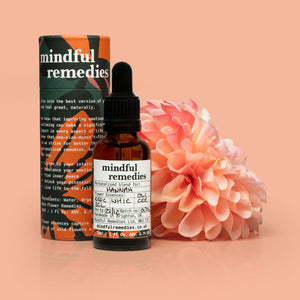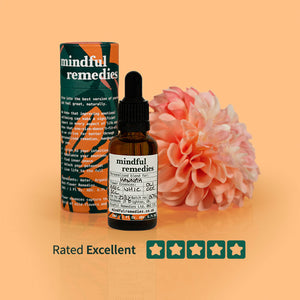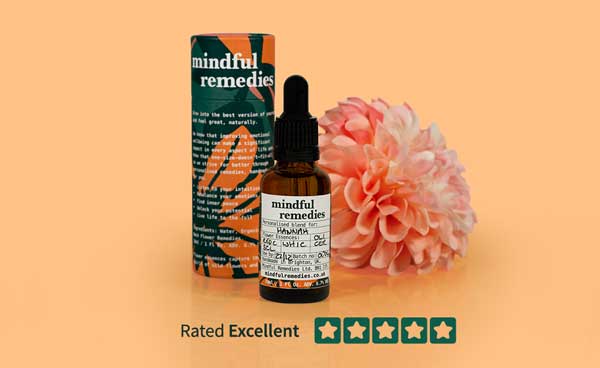your basket
- choosing a selection results in a full page refresh

Do you feel like you're always giving and never getting? Do you feel like people are taking advantage of your time and energy? If so, it's time to set some boundaries. In this blog post, we will discuss setting healthy boundaries in relationships - with friends, parents, work and romantic relationships. We will provide tips for setting personal, emotional and mental boundaries. When you set healthy boundaries, you create a sense of empowerment and control in your life. You'll find that you have more energy and enthusiasm to devote to the things that matter most to you!
Boundaries are the lines we draw to define what is and isn't acceptable in our interactions with others. We all have personal boundaries that define how we want to be treated, and when those boundaries are crossed, it can feel hurtful or even threatening. Maintaining healthy boundaries is an essential part of taking care of ourselves emotionally and physically. By setting clear boundaries, we can protect ourselves from being exploited or manipulated, and we can also avoid accidentally hurting or offending others. In order to have successful relationships with others, it's important to communicate our boundaries clearly and to respect the boundaries of others. When we all take responsibility for protecting our own emotional well-being, we can create a safer, more supportive world for everyone.

Many of us have experienced the feeling of being overwhelmed by requests from friends. Whether it's being asked to do something we don't have time for, or simply not wanting to do what they're asking, it can be difficult to know how to say no. However, it's important to set boundaries with friends in order to maintain our own wellbeing. Here are a few tips on how to do so:
If you don't have time for something, be honest and explain that you're already stretched thin. Let them know that you value their friendship but can't commit to anything else right now.
If you're not interested in what they're asking, be equally honest. There's no need to make up an excuse - just let them know that it's not something you're interested in. They may be disappointed, but they'll likely respect your honesty.
It's also ok to tell them that you need some time to think about it. This buys you some time to decide whether you really want to do it or not, without having to give an immediate answer.
Remember, it's perfectly ok to say no to friends. By setting boundaries, we can ensure that we're taking care of ourselves first and foremost.
Setting boundaries with parents can be a tricky task. On the one hand, you want to respect their wishes and remain close to them. On the other hand, you need to establish your own independence and establish rules that work for both of you. The key is to strike a balance between these two objectives.
One way to do this is to set clear expectations from the outset. Discuss your needs and wants with your parents, and be sure to listen to their concerns as well. Once you have a good understanding of where each of you is coming from, it will be much easier to set limits that work for both of you.
Another important tip is to avoid ultimatums. If you threaten to move out or cut off contact unless your parents change their behaviour, you are likely to damage the relationship without actually solving the problem. Instead, try to focus on finding mutually agreeable solutions that satisfy everyone's needs. With a little patience and understanding, it is possible to set boundaries with parents that work for both of you.

We all know the feeling of being overstretched at work - too much to do, and not enough time to do it. It's important to be able to set boundaries, so that you can manage your time and workload in a way that works for you. Here are some tips on how to do just that.
First, it's important to get clear on your priorities. What is it that you need to focus on, and what can you let go of? Once you've got a handle on that, you can start to build some structure into your day. That might mean setting aside specific times for certain tasks, or batch-working so that you're not constantly switching between different things.
Another important boundary to set is around your availability. You don't have to be available 24/7 - in fact, it's important to have some down-time where you're not working. So switch off your email notifications outside of work hours, and make it clear to colleagues that you're not to be disturbed during your breaks.
Finally, don't be afraid to say no. If someone asks you to do something that doesn't fit with your priorities or availability, it's OK to say no. It's better to
By following these tips, you can learn to set boundaries with work and create a healthy balance in your life.
Setting boundaries in romantic relationships is important for maintaining respect and ensuring that each partner feels comfortable and safe. Boundaries can be physical, emotional, or mental, and they may involve setting limits on communication, sex, or time spent together. It is important to discuss boundaries with your partner early on in the relationship, and to be mindful of changing needs and preferences over time.
Respecting your partner's boundaries shows that you care about their feelings and want to create a healthy, supportive relationship. If you are unsure about what your partner's boundaries are, don't hesitate to ask them directly. Remember, setting boundaries is an ongoing process - keep the lines of communication open, and be willing to adjust your boundaries as needed.

It's so important to take care of yourself first and foremost. When you put yourself last on the list, it's easy to get run down, both physically and emotionally. Taking care of yourself means setting boundaries - knowing when to say "no" in order to protect your time and energy. It also means making sure that you're taking care of your physical health, getting enough sleep, and eating nourishing food. When you make self-care a priority, it's easier to show up for others in a way that is sustainable. You have more energy to give, and you're better able to handle whatever life throws your way. So next time you're feeling overwhelmed, remember to take a step back and focus on taking care of yourself first.
If you're interested in supporting your emotional wellbeing in a natural, holistic way, you may want to consider Bach Flower Remedies. They are a system of 38 natural remedies created in the 1930s by Dr Bach who was a physician and homeopath. Each flower remedy relates to a different emotional state.
The Bach flower remedy to help for setting boundaries is called Centaury. This remedy is helpful for people who can be too nice and willing to please others that they don't stick up for themselves. If you feel you can be easily influenced or you struggle saying no, you might want to give this a try.
You can read more about Centaury here.
Through Mindful Remedies you are able to create a personalised flower remedy blend including up to seven flower remedies in a treatment bottle. You can select any of the 38 Bach flower remedies, we'll hand craft your bottle and post it to you.
Click below to view all 38 flower remedies and to create your own blend:

Since 2021, Lucy Edwards, a qualified Bach Flower Practitioner and the driving force behind Mindful Remedies, has connected with clients across the world. Crafting thousands of personalised remedies, Lucy has supported individuals' emotional wellbeing, shipping remedies to far-flung places like the USA, Thailand, and Australia.
Lucy is readily available for conversations, offering personalised advice to guide you on the path to holistic wellness. It's important to note that she's not only qualified but also registered with the Bach Centre, ensuring that every consultation and remedy adheres to Dr Bach’s original guidelines for expert care and efficacy.
Exclusive pricing 20% off your first subscription order and 5% off all future orders
VIP treatment Receive personalised advice from Lucy, free gifts & 15% off gift vouchers
Easy to manage Edit remedy, change schedule, pause or cancel at any time
Exclusive online workshops Access to workshops focusing on emotional wellbeing, guided by Lucy
Early access to new products Be the first to try out new remedies or wellness products, before anyone else



